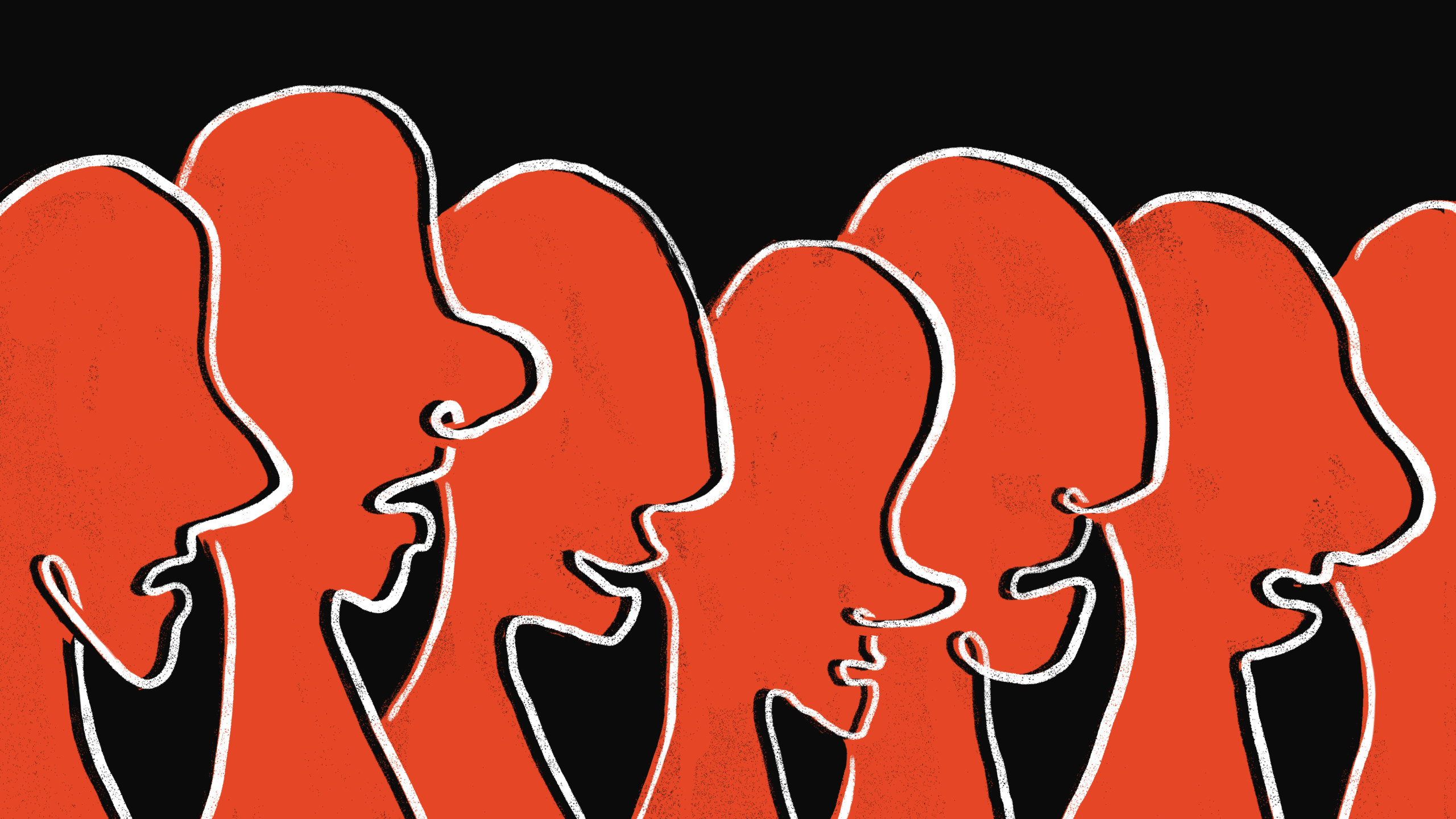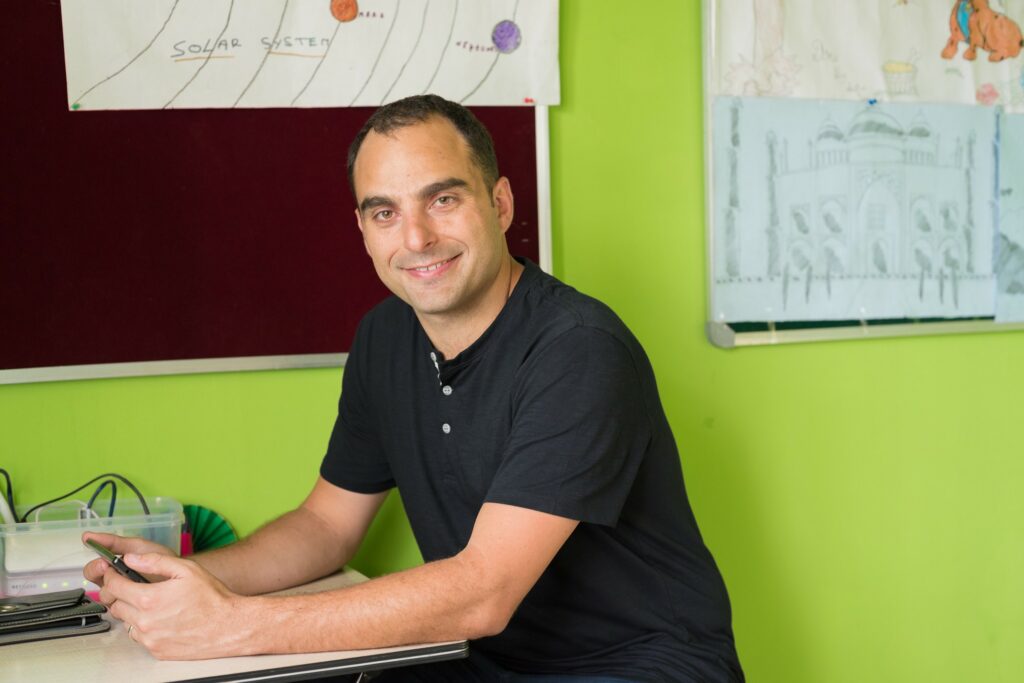Sydney Business Insights

CEO Insights: Technology against poverty with 40K’s Clary Castrission
As part of our CEO Insights series, we talk to social enterprise entrepreneur Clary Castrission, the founder and CEO of 40K, about why he thinks business, not charity, is the future solution to economic inequality.

Show notes and links for this episode
The British Council Report: Think Global Trade Social (2015)
Amartya Sen: The Sveriges Riksbank Prize for Economic Sciences in memory of Alfred Nobel (Nobel prize for Economics, 1998)
Reports: Does democracy avert famine? and All modern critiques of inequality owe a debt to the Indian economist Amartya Sen
Muhammad Yunus: Nobel Peace Prize 2006
Yunus’ reports, ‘We are all entrepreneurs’: Muhammad Yunus on changing the world, one microloan at a time, Muhammad Yunus: ‘Business is a beautiful mechanism to solve problems’, Giving capitalism a social conscience
Thank you to bbc.co.uk (copyright 2018 BBC) for some of the additional sounds in this podcast.
You can subscribe to this podcast on iTunes, Spotify, Soundcloud, Stitcher, Libsyn, YouTube or wherever you get your podcasts. You can follow us online on Flipboard, Twitter, or on sbi.sydney.edu.au.
Sydney Business Insights is a University of Sydney Business School initiative aiming to provide the business community and public, including our students, alumni and partners with a deeper understanding of major issues and trends around the future of business.
Share
We believe in open and honest access to knowledge. We use a Creative Commons Attribution NoDerivatives licence for our articles and podcasts, so you can republish them for free, online or in print.
Transcript
(Music playing)
Sandra Peter: Clary Castrission is the founder and CEO of 40K, an organisation that’s trying to make money out of some of the poorest people in the world.
He knows that some people think what he’s doing is morally wrong.
Clary Castrission: It does stir the feathers to some people ‘how can you charge people who are only earning three to seven dollars a day’?
Sandra: 40K sells English language lessons to the children of India’s rural poor.
Clary: What we're doing is leveraging the idea that every parent wants the best for their child.
Sandra: Castrission believes a business operation rather than a charity is the most effective way to drive social and economic improvement. He cites a pro-social welfare Nobel Prize winning economist and philosopher as his major inspiration.
Clary: My favourite economist is an Indian guy called Amartya Sen who talks about poverty as being about access and freedom to choose.
Sandra: He’s got the backing of some very big investors.
Clary: Google and the Australian Government just put half a million dollars into developing our software. Atlassian just invested a million dollars into it. M.I.T. up in Boston selected 40KPlus as one of its five global winners. So it just it's great to see that after really a decade of toiling that we're starting to get some wind in the sails now.
Intro: From The University of Sydney Business School, this is Sydney Business Insights. The podcast that explores the future of business.
Sandra: I’m Sandra Peter. Today on Sydney Business Insights we talk with social enterprise entrepreneur Clary Castrission. We learn why he thinks business, not charity, is the future solution to economic inequality - and how you can teach English without English teachers.
(Music ends)
Sandra: Castrission was an idealistic 21 year old fresh out of law school when, rather than proceeding into corporate life, he travelled to India determined to do good deeds.
His first venture was to build a school: It took him 5 years to raise half a million dollars and build a state-of-the-art facility offering free education to 400 children from India’s underclass.
But instead of feeling triumphant Castrission was disheartened. All his work amounted to just a drop in the ocean. And building enough quality schools to cater for every poor kid was impossible.
He needed a different model – something that could service thousands of villages without needing lots of expensive buildings and teachers.
His solution was to go small and portable.
Clary: We've developed an education program called 40 K plus which uses technology to move cloud base education content into an offline environment through a technology system that we've invented.
The delivery, the front end, children attend in India every day after school through these rented afterschool spaces called pods where they've got personalised learning programs set up for them where they log into these tablets and progress at their own pace and it gives us the data so we can see how every single child is tracking.
Sandra: Castrission not only changed 40K’s product he also switched it from being a charity into a social business.
Clary: We charge for it that's what makes us a social enterprise and it does stir the feathers to some people in terms of ‘how can you charge people who are only earning three to seven dollars a day?’
But my way of thinking about is we've all heard that mantra you give a man a fish you feed him for a day, you teach a man to fish you feed him for a lifetime.
This whole aspect of social enterprise kind of extends that analogy and says ‘Can you sell the man a fishing rod or can you give that man a loan so he can set up a fishing business?’
So for us we feel by actually selling the service that we'll get much faster feedback in terms of - Is it meeting the need that our customers are willing to pay for?
Sandra: 40K currently operate in 49 villages in India teaching almost 2,000 students. It has also recently started a pilot program operating out of 4 government schools in Cambodia teaching more than 1,200 students. It charges $2.50 per child per month, and their customers are...
Clary: ...farmers or they work in agriculture. They work in quarries around Bangalore. Some of them work as domestic help. They're earning between three and seven dollars a day. A lot of them are first generation learners. So when it comes to their children they're mainly enrolled in government schools. India's got a very expansive government school system it's just that within those government schools the quality is not great.
So they're happy to invest what little they have into education and in that regard it kind of means that you stop looking at them as ‘have nots’. You look at them as ‘have littles’ and there's a big difference when you look at them as have littles then you can really drive innovation to deliver something at a price that they can afford.
Sandra: What his customers want for their children are English language lessons.
Clary: English is the language of commerce and the law. So in India all the best universities are taught in English. Business is done in English. It's really the national language over there because every state has its own different language.
Sandra: Approaching his mission as a business rather than a charity also drove the innovation necessary to be able to provide English lessons at a price point the villagers could afford.
It takes 15 years to train a teacher – 12 years of quality school education plus a degree. Hence teachers are expensive and difficult to entice and retain in a rural setting.
In each village 40K hire local women to supervise and motivate the children. The 75 minute English lesson is delivered by 40 K’s intellectual proprietary technology.
Clary: What we identified was that there's an abundance of educational content out there but if you think about a child in a village the things that are restricting him from actually receiving it is A) having a device in an ecosystem around them to actually see it on, physically and B) the Internet. Internet penetration is still largely targeted around cities. So what we built is firstly something that sits between education technology and content.
So with the education side of it the content is online. We enter into licensing agreements with the content creators break up into little pieces mapped it to a local curriculum whether it's the Indian curriculum or the Cambodian wherever we are working so that it's age appropriate and in line with their curriculums. Then what we do is we've built a dashboard that sits behind the scenes on the cloud.
To get that into a village It then syncs with a mechanism that we've invented called sneaker sync so that literally uses another tablet, syncs from web on to a tablet is literally motor-biked out to the last mile where there is an apparatus that uses a microcomputer out of the UK called a Raspberry Pi and a router and a battery pack, syncs onto that and then that shoots it onto all the tablets that are in that village.
The children themselves log into an app on an Android platform. Every time they log in it sends information back to this server so that when they log out and it's motorbike back to a WiFi zone we can then get longitudinal data on how every single child is progressing.
So we've essentially designed around the restrictions that are stopping quality educational content from getting into a village and made it work.
Jarrod: My gut feeling is that social enterprises are better at delivering on important needs when compared to charities.
Sandra: This is...
Jarrod: ...Jarrod Vassallo and I'm a lecturer of social entrepreneurship at the University of Sydney Business School.
Sandra: Social entrepreneurship, social enterprise, and social business – we’ve been throwing these terms around a bit loosely.
Jarrod Vassallo studies this form of … not for profit business…, charity at a price – help us out here Jarrod.
Jarrod: I think a social enterprise from a lay person’s perspective is really a business or an organisation that has a strong social objective as well as a financial objective. We can trace the origin of social enterprise all the way back to the CO-operative movement in England in the early 1800s, but I think the term was probably popularized and really championed by Muhammad Yunus who won the Nobel Prize Nobel Peace Prize in 2006.
Essentially social enterprise those organizations that rather than seeking what we call economic profits. So accounting profits but also being inclusive of the cost of capital they can focus on those problems within society or those needs that are unmet that may not derive the sorts of profits that traditional businesses or corporations would be interested in, and as such they can meet the needs that are meet the needs of a lot more people.
Sandra: OK so a business for social good, inspired by a Nobel Prize winning economist and the father of micro finance – but if that’s not enough, wait for the numbers...
Jarrod: Social enterprises actually do make up a large proportion of the economy. So for example if we were to look at the United States social enterprises in the US represent 3.5% of the country's GDP, which is actually the equivalent of Silicon Valley.
If we were to look at the percentage of Kenya's GDP, which is made up through the activities of social enterprises, the figure is even larger it's at around 45% which is larger than their for profit corporation contribution or their government contribution so it’s pretty huge.
Sandra: Castrission is also inspired by the business smarts of hard core profit driven corporations such as Coke and Unilever that are able to make money in what outsiders would consider poverty stricken markets.
Clary: You can go into a village and buy a bottle of coke you can go into a village and buy a single serve of Pantene shampoo. So the Unilever's the Coca-Cola have figured out ways to not only deliver products and services through these intricate supply chains but doing it at a price that they can still maintain quality but deliver at low price. And what that means is that they're opening up huge markets in India that that market is 300 million people and you only have to make a rupee and you're doing pretty well.
Sandra: For Castission the WHY part of this equation is these brands are not only tapping into material desires but also a basic human emotion.
Clary: Now you could argue that what Coca-Cola and Pantene are doing are giving access to dignity that people can have a fun drink they can wash their hair - that's giving people dignity. My favourite economist is an Indian guy called Amartya Sen who talks about poverty as being about access and freedom to choose. So what that means is that the poorer you are the less choice you've got about things like education but also the things that make life good.
Jarrod: Amartya Sen was the winner of the 1998 Nobel Prize in Economics...
Sandra: ...Jarrod Vassollo again – he’s our guide to celebrity economists in this podcast.
Jarrod:... and he's one of the biggest names in economics for a variety of different reasons, but his key focus is on a capabilities approach to development, whereby we articulate poverty not according to where somebody is with regards their earnings, but with regards to the freedoms that they're able to enjoy. Sen identifies a variety of different freedoms that aren’t only economic in nature, but also relate to political freedoms social opportunities and transparency and other things.
Sandra: And this fits in with running a social enterprise because...
Jarrod: If we were to take a Sen approach to social enterprise and measuring the success of what that enterprise does it's incumbent on us to look at the our ability to improve an individual's ability to function in the world. Give that individual more freedom and the capabilities to get to where they want to end up so it's not just about ensuring that a poor person earns more money or is better off financially and measuring it against this uni dimensional scale, but rather it's about looking at that poor individual as a holistic human being with many different facets and trying to. give them access to the same freedoms that wealthier people enjoy. So it's not just financial but it's about their health, their ability to choose the sorts of sort of like career options that they want or their ability to make choices and to enjoy those choices.
Sandra: For Castrission having a viable business model – rather than operating as a charity, makes the operation sustainable...
Clary:...if you're just giving it away if the funding stops for whatever reason your program stops.
Sandra: AND if each 40K pod turns a profit the model is scalable into every one of India’a 275,000 villages – and beyond. In Cambodia 40K is testing its program in 4 government run schools with ambitions to expand not only in that country but also other neighbouring countries.
However Castrission admits 40K is still far from that goal.
But he has some very big backers prepared to invest in his vision – Australia’s Department of Foreign Affairs, Google and Australia’s tech unicorn, Atlassian.
Bernard Ferguson (Atlassian Foundation): So as an organisation The Atlassian Foundation have a big hairy audacious goal. We call it 10 by 10 and it's basically trying to have a positive impact for 10 million disadvantaged youth within 10 years through the power of a quality education.
Sandra: Bernie Ferguson is 40K’s partnership manager at the Atlassian Foundation. They have invested both money and technical support into 40K – it’s the ‘Sen’ thing to do.
Bernard: We want to make a difference in the world. And we believe that education is a powerful instrument to use to help to advance humanity, particularly in providing young people, particularly young women the opportunity to have access to education where they may not have in the past. And we believe that providing access to a quality education enables them to have jobs for the future.
Sandra: Part of Atlassian’s governance role is to run a quality check across the program. On the education front 40K is succeeding.
Bernie: So we take baselines of the students at their current rate and also compare those to students that don't have the opportunity to come to 40 k in other government schools, for example, and what we’re seeing through the first two pilot rounds over the last two years is that was seen a learning progression about one to one and a half to two times faster than if the student wasn't involved with 40 k plus. So the end outcome that we want is that the students that do come is have a better learning outcome. And that's a great way to validate that. But what we also see something that I'm particularly proud of is that each individual student has their own learning progression tracked so we can see how they're progressing. We can see where they're having troubles and we can help the student on an individualised basis because they all have their own unique login to understand how they're progressing and then intervene if they need some assistance.
Sandra: While the students are hitting their marks – Castrission and his backers admit they are still struggling to reach theirs.
Fortunately for 40K, Atlassian also have its eyes on the bigger, long term, prize.
Bernie: We work very closely together. And one of the things I'd call out about that which I think is interesting is being a partnership, it’s good to share things that are going well, but it's also really important to share areas where you're concerned or you're not going so well.
And we've got some great examples with 40 K and Atlassian being open and direct and honest.
One of our values as an organization is open company no BS that's one of our values and 40 k have a similar value around being open being direct.
Stepping up, getting stuff done is, they’re the values of oganizations like 40 K and the values of Atlassian and we’re a very close match and that's an important part of the partnership that we are honest we are open. We are pushing and challenging each other to have the biggest impact possible.
Clary: You know I'd like to be in 10 countries and servicing the needs of a million children. We know we've got a product that's good but the models not quite right. I'd probably sleep much better next year if I knew that the model that we had was not so effortful that we created some great partnerships and we'd built a team that was really just producing something quality and distributing it through a channel that it was reaching scale in a much more effective way than what we're doing now.
(Sounds of kids learning via the pods.)
Sandra: This podcast is part of SBI’s CEO Insights series. A special thank you to Trevor Watson for recording the interview with Clary Castrission. And to Jacquelyn Hole and Megan Wedge for making this podcast possible.
Outro: You've been listening to Sydney Business Insights. The University of Sydney Business School podcast about the future of business. You can subscribe to our podcast on iTunes, Stitcher, Libsyn, Spotify, SoundCloud or wherever you get your podcasts. And you can visit us at sbi.sydney.edu.au and hear our entire podcast archive, read articles and watch video content that explore the future of business.
*End of transcript*
Close transcript







